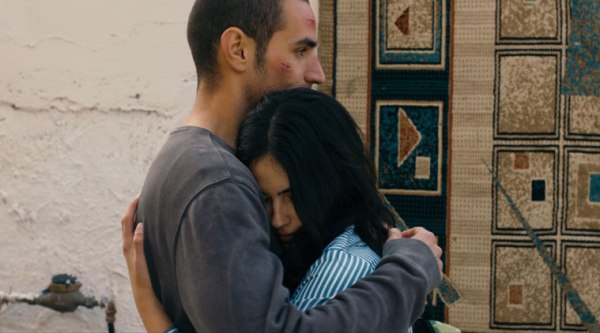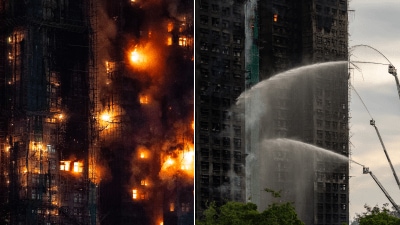Click here to follow Screen Digital on YouTube and stay updated with the latest from the world of cinema.
“I am not an activist and I don’t want to become one either”
After watching Paradise Now by two-time Oscar nominated Palestinian filmmaker Hany Abu-Assad, actor Waleed Zuaiter knew that he wanted to work with him immediately.
 Omar (2013) , the first fully Palestinian venture from the funding to the cast and crew, which also bagged Assad his second Oscar nomination for the Best Foreign Film in 2014.
Omar (2013) , the first fully Palestinian venture from the funding to the cast and crew, which also bagged Assad his second Oscar nomination for the Best Foreign Film in 2014.
After watching Paradise Now by two-time Oscar nominated Palestinian filmmaker Hany Abu-Assad, actor Waleed Zuaiter knew that he wanted to work with him immediately. The result was Omar (2013) , the first fully Palestinian venture from the funding to the cast and crew, which also bagged Assad his second Oscar nomination for the Best Foreign Film in 2014. After successful screenings at Cannes, New York and recently at the film festivals in Mumbai and Dharamshala, Zuaiter, who reprises the role of an agent from the Israeli secret police and also produced the film, speaks about his vision for Omar and about the Arab-Israel conflict. Excerpts:
How did the thought of making Omar as a complete Palestinian exercise come about?
It was a shared dream that my brothers and Hany (Abu-Assad) had and a lot of it was very idealistic — to have a film that is fully financed, produced and even the crew is Palestinian. It would have been easier to go for European funds but the first step to peace is through economic independence. It was our goal to let Palestinians invest in their own film. In hindsight it was not the best thing to do because it lessened our chances of showing in some European countries.
Was it easy to get funding for an independent film, which looked at the Arab-Israel conflict?
I went to my brothers, the former CEOs of Soros Fund Management. I knew it would appeal to their interest because a lot of their work is to do with creating jobs for Palestinians on the ground. And this is what this film did. Ninety five per cent of funding came from Palestinian sources and five per cent came from Dubai. But my brothers wanted to take this further so they started a company called Zebros, to support Palestinian filmmakers. We don’t know what the future of Zebros is going to be.
What drew you to act and produce the film at the same time?
I met Hany shortly after Paradise Now. I was very proud for him getting the Oscar nomination. And then he showed me the script for Omar and I was gripped the moment I read it. It was only 72 pages and that is the shortest script that I have read. It was just so great that I have to do this. I felt it tapped into my sensibility as an actor because acting is all about looking into the details and I am able to apply my skill sets while producing a film.
How did you shoot this film? Was there a lot of resistance from the Israeli side?
For the first few days, we filmed in a refugee camp in Israel where I got to see how the displacement Palestinians were living. But we were mostly shooting in Nazareth, an Arab town within Israel. Nazareth never really succumbed to Israeli pressure. We filmed there because our crew was based there. We didn’t experience any problem except for stray incidents with small local groups.
Have you been able to sell this move to other film markets and are people buying your film?
I have succeeded in raising visibility for the cinematic art in Palestine and for raising the profile of Palestinian cinema. But personally I have failed because I would have at least liked my investors to get their money back. That journey is going to take another 2-3 years hopefully. These movies are not as commercially viable which is a reflection of the escapist cinema that is happening around us.
Do you believe that films like Omar help in establishing dialogue between two troubled countries?
I think that films and documentaries such as Omar, Paradise Now and Five Broken Cameras (Emad Burnat), help raise awareness about the Middle East in an indirect manner. Moreover, social media will help to draw awareness to films like these. I am not an activist and I don’t want to become one either. I know my strengths lie in being an artist.
What are your current projects?
I will be in India shooting for London has Fallen, (a sequel to Olympus has Fallen by Babak Najafi) in the first half of December. I play a character from Pakistani descent. It’s a central role in the film.


- 01
- 02
- 03
- 04
- 05


































